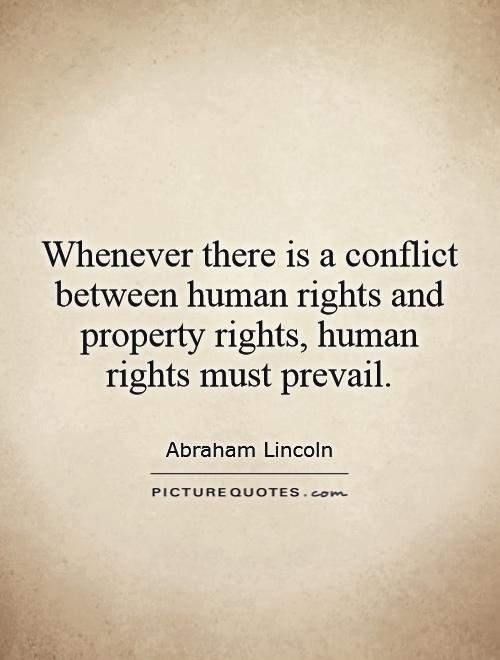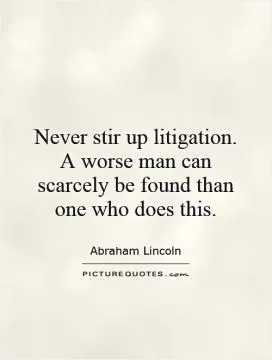Whenever there is a conflict between human rights and property rights, human rights must prevail

Whenever there is a conflict between human rights and property rights, human rights must prevail
Abraham Lincoln, the 16th President of the United States, is often remembered for his unwavering commitment to human rights and equality. Throughout his presidency, Lincoln faced numerous challenges and conflicts, particularly during the Civil War, where the issue of property rights versus human rights was a central theme.One of the most significant conflicts during Lincoln's presidency was the issue of slavery. The institution of slavery was deeply entrenched in the Southern states, where human beings were treated as property and denied their basic human rights. Lincoln recognized the inherent injustice of slavery and believed that human rights must always prevail over property rights. In his famous Emancipation Proclamation, Lincoln declared that all slaves in Confederate-held territory were to be set free, effectively ending the legal institution of slavery in the United States.
Lincoln's commitment to human rights was further demonstrated in his support for the 13th Amendment, which abolished slavery throughout the United States. Despite facing opposition from those who argued that property rights should take precedence over human rights, Lincoln remained steadfast in his belief that all individuals are entitled to basic human rights, regardless of their status as property.
In addition to his stance on slavery, Lincoln also championed other human rights causes during his presidency. He advocated for the rights of Native Americans, supported the rights of workers, and worked to ensure that all individuals had access to education and opportunity. Lincoln understood that true freedom and equality could only be achieved when human rights were protected and upheld.












 Friendship Quotes
Friendship Quotes Love Quotes
Love Quotes Life Quotes
Life Quotes Funny Quotes
Funny Quotes Motivational Quotes
Motivational Quotes Inspirational Quotes
Inspirational Quotes